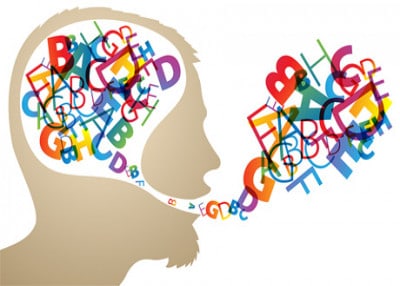Too often when kids struggle with reading, we think we just need to reinforce and ‘drill in’ those letter and phonics sounds. This can work for some kids, but for kids with auditory processing disorder, drilling in sounds can be futile until you address the underlying reason why they are having a hard time keeping up with their peers.
… When you’re told, ‘they’ll grow out of it’
This is exactly what happened with Amanda’s daughter Gwen. Gwen was nine-years-old and had been diagnosed with dyslexia and auditory processing disorder. Well-intentioned family and friends kept telling Amanda, that Gwen just needed extra practice and she would eventually grow out of it.
But tutoring and the school’s remedial reading program did little to help Gwen. In fact, Gwen was beginning to shut down. Homework and even going to school had become a regular battle between mom and daughter.
How Auditory Processing Affects Reading Ability
I explained to mom that trying to drill in sounds was a lot like putting the cart before the horse with kids like Gwen who had auditory processing disorder.
Auditory Processing Disorder is often connected to dyslexia and reading disorders because strong auditory processing skills are necessary for phonemic awareness.
If you’re good at sound differentiation then you take it for granted. If you’re like Gwen, it’s easy to mix up sounds like ‘b’ and ‘d’ or ‘n’ and ‘m’. Many sounds or phonemes only have slight variations and detecting these subtleties can pose a unique challenge when there are weaknesses with auditory processing.
The Importance of Sound Discrimination in Reading
These kids often have a hard time with sound discrimination. When they’re having a hard time hearing individual sounds or phonemes accurately, then blending or segmenting sounds when reading become even more difficult.
For many kids, this can extend to more than simply challenges with decoding. Reading comprehension, difficulty with spelling, vocabulary as well as memory issues since retention is largely language-based. This can also be the reason why children with auditory processing issues have difficulty following multiple instructions.
The Need for Multi-Sensory Therapies that Retrain the Auditory System
When auditory processing issues are an underlying factor in reading program, standard remedial instruction is often not enough. These kids need a multi-sensory learning therapy that extends beyond addressing the surface level symptoms and difficulties with reading.
A multi-sensory learning therapy that retrains the ear and strengthens weak auditory processing in the brain is needed. The process should involve a logical and incremental approach in which one layer builds upon another so that auditory processing challenges are not simply managed but rather overcome.
If you’re done with band-aid approaches and remedial reading as the only solution, then book a free Better Brains Breakthrough call here.
Wishing you and your family health & wholeness,
Lorraine


